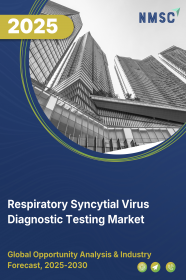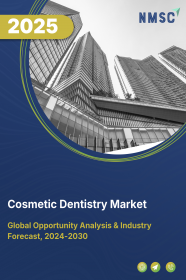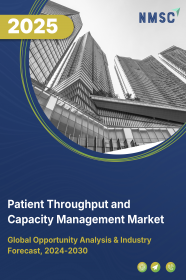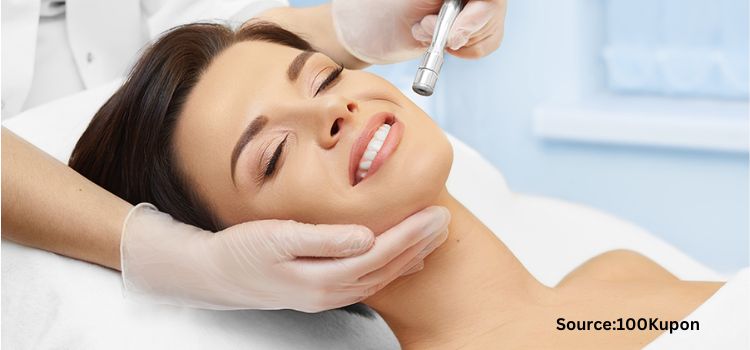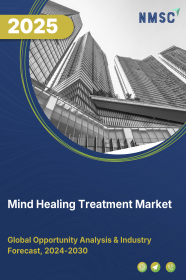
Mind Healing Treatment Market by Treatment Type (Psychotherapy, Medication, Energy Healing Therapies, and Others), by Application (Stress Management, Depression & Anxiety, Spiritual & Emotional Growth, and Others), by Age group (Children and adolescents, Adults, and Seniors), by Distribution Channel (In-Person Treatments, Online, and Workshops and Retreats) and by End user (Individuals, Corporates, Healthcare Providers, and Others)– Global Opportunity Analysis and Industry Forecast 2025-2030
US Tariff Impact on Mind Healing Treatment Market
Trump Tariffs Are Reshaping Global Business
Mind Healing Treatment Market Overview
The global Mind Healing Treatment Market was valued at USD 56.53 billion in 2024 and is predicted to reach USD 304.59 billion by 2030 with a CAGR of 32.4% from 2025-2030
The mind healing treatment (MHT) market is experiencing significant evolution, driven by several key trends and factors. The top three market trends observed are an escalating rates of mental health disorders, a growing preference for non-invasive and drug-free mental health treatments like Transcranial Magnetic Stimulation (TMS), and the increasing integration of mind-body therapies into conventional healthcare settings. These trends are propelled by drivers such as the rising prevalence of mental health disorders, consumer dissatisfaction with traditional treatments, and the expanding body of research supporting the effectiveness of mind-body interventions, contributing to the market's overall growth potential and expanding industry size.
However, the market faces restraints including the need for more robust scientific evidence and recognised evaluation methods for certain therapies and competition from established biomedical models and the influence of pharmaceutical interests.
Opportunities for industry players lie in investing in higher-level research to validate efficacy and understand mechanisms of action and integrating mind healing treatments within a holistic, whole-person healthcare framework, potentially expanding the market share and overall market size.
The Rising Tide of Mental Health Concerns Drives the Mind Healing Treatment Market Growth
The escalating rates of mental health disorders such as anxiety and depression are a significant driving force in the mind healing treatment market trends. Stress, in its various forms from work pressures to financial burdens, has become a pervasive "silent invader" impacting mental well-being. When left unaddressed, chronic stress can lead to serious conditions like anxiety disorders and depression.
Globally, over 450 million individuals suffer from various mental and behavioural disorders, and alarmingly, the correlation between mental health disorders and chronic physical illnesses is three times higher compared to the general population. Projections suggest that depression could become the leading health risk worldwide by 2030.
This increasing prevalence creates a substantial demand for effective mental health treatments, including mind healing therapies. For instance, Transcranial Magnetic Stimulation (TMS) therapy is presented as a "breakthrough treatment" for depression, particularly when traditional methods have failed. This highlights how the growing burden of mental illness fuels the search for and adoption of alternative and complementary approaches within the market.
Seeking Solutions Beyond the Pills Accelerates the Demand for Mind Healing Treatment
Many individuals experiencing mental health challenges express dissatisfaction with traditional treatments like medications, often citing unwanted side effects or a lack of effectiveness. Consumers are also becoming more informed about their health choices and are "less inclined to follow wellness trends blindly, opting for evidence-based practices over marketing hype". This shift in consumer behaviour is pushing the market towards therapies that are perceived as gentler, non-invasive, and with fewer adverse effects compared to pharmacological interventions.
The focus is increasingly on addressing the root cause of illness and supporting the body's natural healing abilities, as seen in the growing interest in holistic medicine. This demand for alternatives creates a strong impetus for the growth and acceptance of mind healing treatments.
Increasing Integration of Mind-Body Therapies into Conventional Healthcare Settings Boosts the Mind Healing Treatment Market Demand
A growing body of research is underscoring the efficacy of various mind-body therapies in treating a range of physical and mental health conditions. Mind-body therapies (MBT) are based on the understanding of the "combined use of the brain and body" to promote health. These therapies encompass diverse modalities such as meditation, yoga, tai chi, acupuncture, hypnotherapy, and biofeedback.
Bibliometric analysis of global research trends in MBT indicates an increasing number of studies examining their relevant aspects, suggesting a heated discussion and widespread attention in recent years. Research shows that MBT can be effective for conditions like chronic pain, insomnia, anxiety, depression, cancer-related symptoms, and cardiovascular disease.
For example, acupuncture has demonstrated significant pain reduction in cancer patients, and meditation has shown beneficial therapeutic effects on stress and various physical and mental conditions. This increasing evidence base contributes significantly to the credibility and adoption of mind healing treatments within the broader healthcare landscape.
The Need for Rigorous Scientific Validation Hinders the Mind Healing Treatment Market Expansion
Despite the growing interest and research in mind healing treatments, a significant restraint lies in the lack of high-level, consistently reproducible scientific evidence and recognised evaluation methods for certain modalities.
The subjective nature of some MBT evaluations and the complexities of their mechanisms of action pose challenges for traditional scientific scrutiny. Researchers note the urgent need for "clinical efficacy studies, neurobiological studies, and methodological studies" to better evaluate the effectiveness of MBT and clarify how they work.
The difficulty in conducting double-blind experiments and the potential for a strong placebo effect further complicate the assessment of true efficacy. While "systematic review" and "meta-analysis" have emerged as research frontiers in the field, indicating a move towards higher levels of evidence, the need for more rigorous and well-designed studies remains crucial for wider acceptance and integration of all mind healing treatments into mainstream medical practice.
Integrating Mind Healing into Whole Person Healthcare Presents Lucrative Opportunity for the Market Expansion
A significant opportunity for the mind healing treatment sector lies in its seamless integration into a holistic, whole-person healthcare approach, which emphasizes treating the entire individual mind, body, and spirit rather than isolated symptoms. This comprehensive philosophy addresses physical health, emotional well-being, mental health, and lifestyle factors, aligning perfectly with mind healing therapies that focus on the mind-body connection and root cause resolution. Healthcare providers adopting whole-person healthcare prioritize understanding patients’ unique needs, emphasizing preventive care and employing modalities such as acupuncture, chiropractic care, nutrition counseling, and stress management.
Recent innovations underscore this potential, with companies like All Points North (APN) launching a new facility in London’s Harley Street Medical Area in March 2023, offering integrative treatments like ketamine-assisted healing, deep transcranial magnetic stimulation (dTMS), and mindfulness-based therapies to address trauma, depression, and anxiety through a whole-person lens.
By embedding mind healing therapies within this integrative framework, the market can establish itself as a vital component of patient-centered healthcare, driving better treatment outcomes, enhanced patient satisfaction, and significant market growth.
Market Segmentation and Scope of Study
The mind healing treatment market report is categorised on the basis of treatment type, application, age group, distribution channel, end user, and region. On the basis of treatment type, the market is divided into psychotherapy, medication, energy healing therapies, sensory healing therapies, alternative therapies, holistic practices, and others. On the basis of application, the market is grouped into stress management, depression & anxiety, spiritual & emotional growth, addiction recovery, and chronic pain management. On the basis of age group, the market is further bifurcated into children and adolescents, adults, and seniors. On the basis of distribution channel, the market is divided into in-person treatments, online, and workshops and retreats. On the basis of end user, the market is again bifurcated into individuals, corporates, healthcare providers, educational institutions, and others. Regional breakdown and analysis of each of the aforesaid segments includes regions comprising of North America, Europe, Asia-Pacific, and RoW.
Geographical Analysis
North America, particularly the United States, stands out as a major contributor to the field, evidenced by its highest number of publications, accounting for a substantial market share of research output at 35.2%. The high centrality of the US in international collaborations further suggests a significant level of activity and development in mind healing treatments within this region. This strong research foundation likely translates to a robust market size and continued growth potential as evidence-based practices gain traction and consumer demand for holistic approaches increases.
In Europe, countries like the United Kingdom and Germany also demonstrate a strong presence in the MBT research landscape, ranking among the top nations for the number of publications. Their active involvement in research signifies a growing interest and investment in understanding and applying mind healing treatments within their healthcare systems.
Furthermore, the UK and Spain exhibit high centrality in international cooperation, indicating a collaborative environment that can foster the development and adoption of new therapies. This suggests a considerable market size in Europe with a trajectory for further growth, influenced by increasing awareness of the importance of mental well-being and a preference for non-pharmacological interventions.
The Asia-Pacific region is witnessing a significant surge in research and, consequently, likely market development in mind healing treatments. China holds the second-highest number of publications in MBT research, underscoring its increasing contribution to the scientific understanding and application of these therapies.
Additionally, researchers from South Korea are among the top contributing authors. Traditional practices like acupuncture, originating from this region, are prominent keywords in MBT research, indicating a strong existing foundation and cultural acceptance that fuels market growth. The emphasis on holistic wellness and mind-body connection in many Asian cultures suggests a substantial market size and significant growth potential for diverse mind healing modalities.
Finally, the Rest of the World encompasses a diverse range of countries with varying levels of development in the mind healing treatment sector. While the sources don't provide granular details for each country in this category, the global increase in MBT research and the recognition of mental health as a worldwide concern suggest a growing awareness and adoption of mind healing approaches in many regions.
Factors such as access to information, increasing acceptance of complementary and alternative medicine, and the rising prevalence of mental health disorders are likely driving a gradual expansion of the market size and unlocking growth potential in various countries within this broad geographical category. However, the pace of development and the specific market trends may vary significantly depending on cultural factors, healthcare infrastructure, and economic conditions.
Strategic Analysis of the Companies Operating in the Market
Key players in the global mind healing treatment industry are actively pursuing strategies to enhance the accessibility, efficacy, and scalability of mental wellness and holistic healing solutions to capture a larger market share and address the significant growth potential in this sector.
Recent developments include the expansion of digital mental health platforms, integrative healing programs, and evidence-based therapies, which are increasingly complementing traditional mental health treatments due to their focus on mind-body connection and patient-centered care.
For instance, in March 2023, The Healing Company Inc. finalized the acquisition of the Wellbeing Experiences Businesses from Chopra Global LLC for a total of USD 8 million, integrating Chopra’s meditation app, physical product line, and licensed experiences like the Chopra Health Retreat to strengthen its portfolio of integrative healing solutions.
Similarly, in March 2023, Mindset Health raised USD 12 million to enhance its digital hypnosis apps and expand the availability of its mental health services, focusing on new evidence-based therapies for conditions like anxiety, depression, and chronic pain, leveraging partnerships with institutions like Baylor University and Monash University.
A key challenge for industry players lies in addressing the high costs of developing scalable digital health platforms, ensuring clinical validation of alternative therapies, and navigating regulatory complexities for mental wellness solutions.
However, significant opportunities exist in advancing personalized mental health care, integrating AI-driven analytics for tailored interventions, and leveraging telehealth to improve accessibility and affordability.
Moreover, the exploration of innovative modalities, such as hypnotherapy, mindfulness-based interventions, and neuro-linguistic programming (NLP), alongside traditional approaches, presents considerable opportunities to expand the market and enhance treatment outcomes across diverse applications like stress management, trauma recovery, and chronic condition management.
Future research is also focusing on developing cost-effective, scalable digital therapeutics and optimizing mind healing solutions for specific use cases like workplace wellness, addiction recovery, and pediatric mental health, which could further shape market trends and industry size.
Key Benefits
-
The report provides quantitative analysis and estimations of the market from 2025 to 2030, which assists in identifying the prevailing market opportunities.
-
The study comprises a deep-dive analysis of the mind healing treatment sector including the current and future trends to depict prevalent investment pockets in the market.
-
Information related to key drivers, restraints, and opportunities and their impact on the market is provided in the report.
-
Competitive analysis of the players, along with their market share is provided in the report.
-
SWOT analysis and Porters Five Forces model is elaborated in the study.
-
Value chain analysis in the market study provides a clear picture of roles of stakeholders
Mind Healing Treatment Market Key Segments
By Treatment Type
-
Psychotherapy
-
Medication,
-
Energy Healing Therapies
-
Sensory Healing Therapies
-
Alternative Therapies
-
Holistic Practices
-
Others
By Application
-
Stress Management
-
Depression & Anxiety
-
Spiritual & Emotional Growth
-
Addiction Recovery
-
Chronic Pain Management
By Age Group
-
Children and adolescents
-
Adults
-
Seniors
By Distribution Channel
-
In-Person Treatments
-
Online
-
Workshops and Retreats
By End Users
-
Individuals
-
Corporates
-
Healthcare Providers
-
Educational Institutions
-
Others
By Region
-
North America
-
The U.S.
-
Canada
-
Mexico
-
-
Europe
-
The UK
-
Germany
-
France
-
Italy
-
Spain
-
Denmark
-
Netherlands
-
Finland
-
Sweden
-
Norway
-
Russia
-
Rest of Europe
-
-
Asia-Pacific
-
China
-
Japan
-
India
-
South Korea
-
Australia
-
Indonesia
-
Singapore
-
Taiwan
-
Thailand
-
Rest of Asia Pacific
-
-
RoW
-
Latin America
-
Middle East
-
Africa
-
Key Players
-
Headspace Inc.
-
Calm Minds Healing Center
-
The Healing Company
-
Breathe Life Healing Centers
-
NAMI
-
American Foundation for Suicide
-
Mindset Health Pty Ltd
-
The Jed Foundation
-
Mind Healing & Wellness Center
-
Healing Harmony
-
CRC
-
Medtronic
-
Acadia Healthcare
-
Teladoc Health, Inc.
-
NueCo Holdings, P.B.C
REPORT SCOPE AND SEGMENTATION:
|
Parameters |
Details |
|
Market Size in 2024 |
USD 56.53 Billion |
|
Revenue Forecast in 2030 |
USD 304.49 Billion |
|
Growth Rate |
CAGR of 32.4% from 2025 to 2030 |
|
Analysis Period |
2024–2030 |
|
Base Year Considered |
2024 |
|
Forecast Period |
2025–2030 |
|
Market Size Estimation |
Billion (USD) |
|
Growth Factors |
|
|
Countries Covered |
28 |
|
Companies Profiled |
15 |
|
Market Share |
Available for 10 companies |
|
Customization Scope |
Free customization (equivalent up to 80 working hours of analysts) after purchase. Addition or alteration to country, regional, and segment scope. |
|
Pricing and Purchase Options |
Avail customized purchase options to meet your exact research needs. |

















 Speak to Our Analyst
Speak to Our Analyst



